The Pixel Prophet #14
Escape into cozy games, learn about a Linux backdoor, and delve into many indie games, in this zine-filled issue (this summary was AI created)

Dearest readers!
I hope you like zines because I scattered links to many throughout this issue. You can see it as your personal Easter Egg hunt if you’re into this kind of distraction.
Also, since this issue gets published on April 1st, and many news sites want to be cute with their April Fools’ jokes, I want to make it absolutely clear that I won’t have any of those shenanigans here. I don’t want to have you second-guess every article, I want you to enjoy them.
Have an inspiring read and a great April! — Phil, unicorn-in-chief
You can support the Pixel Prophet at ko-fi, or donate via PayPal to ensure its sustainability. It also helps to tell others about the Prophet who share your great taste in newsletters.
News & Updates
- Linux Backdoor discovered in the XZ Utils compression package which may allow remote access to many Linux distributions. The impact for home users, however, should be low; details here. Evan Boehs’ timeline sheds some light on how this could happen, how an open-source project was undermined by malicious actors.
- OpenAI’s voice cloning only needs a 15-second sample, TechCrunch reports. OpenAI’s Voice Engine is not (yet) open to the public as they hope to “start a dialog on the responsible deployment of synthetic voices” (source / archived). I cannot help but think of tons of nefarious applications to far outweigh any legitimate ones. Again, this reeks of tech in search of a problem for their solution.
- Google Podcasts shuts down on April 2nd. The app with 500 million installs urges users to move to YouTube music that since late 2023 also supports podcasts globally, TechCrunch reports.
Games
Big and small, old, and new, indie and very indie
Minami Lane
RELEASED • Cozy Streetwise
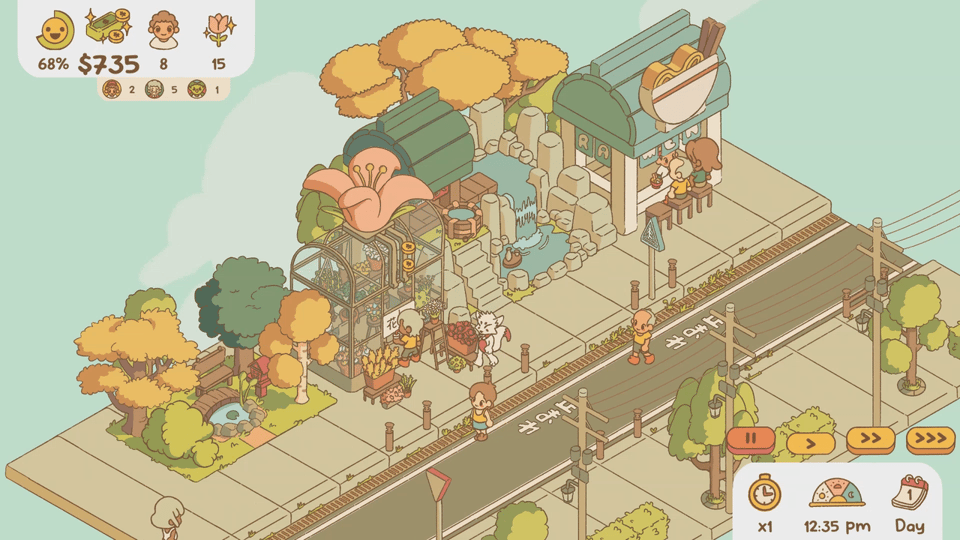
The timing of Animal Crossing: New Horizons (2020) couldn’t have been better; smack-dab at the height of the COVID lock-downs when everyone was craving a little cozy escapism in their lives. Developers took notice of how under-served this particular niche was among a wider audience, and the years since saw a steady stream of cozy games released and releasing – and the world is all the better for it.
In February this year, developer Dorian Signargout a.k.a. Doot released his own take on that genre with ►Minami Lane, a “tiny cozy, casual management sim”.
The illustrations by artist Doriane Randria (blibloop) are adorable, the game looks like a warm blanket I want to wrap myself up in. In Minami Lane you manage a little street, “unlock buildings, manage your shops, and maximize the happiness of your villagers to complete quests and fill your street with love”.
Thousands of reviews on Steam alone secure the game’s “Overwhelmingly Positive” rating and seems like a well-deserved success for Doriane and Dorian! (Also shout-out to the game’s great press kit, much appreciated!)
BLANKSWORD
IN DEVELOPMENT • This sword intentionally left ____
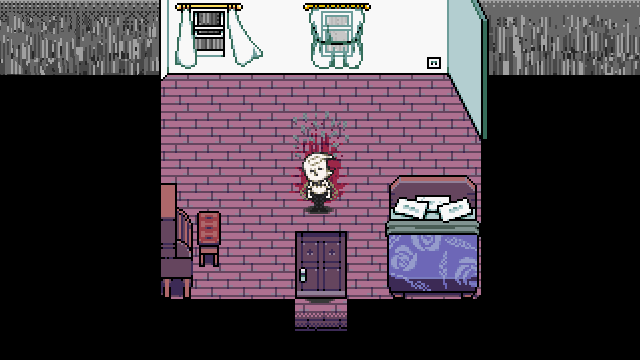
If you liked the quirky Undertale (2015) and have an open mind for more story-driven RPGs, you could also be interested in ►BLANKSWORD that is currently being developed by the team behind the haunting and dreamlike An Outcry (2022), again directed by Quinn K.
The premise is that your brain was taken away from you. (I hate it when that happens! I am looking at you, Old World Blues (2011)!). Rebuilding it becomes the MacGuffin as you explore the game’s world ruled by a divine being who sends His angels to stop you.
From the devs:
If you’re looking for a richly narrative Roguelike with true strategic depth where each run feels special, look no further than our silly little game and its silly little guy!
Orb of Aeternum
JUST RELEASED • Keeper of a lonely dungeon
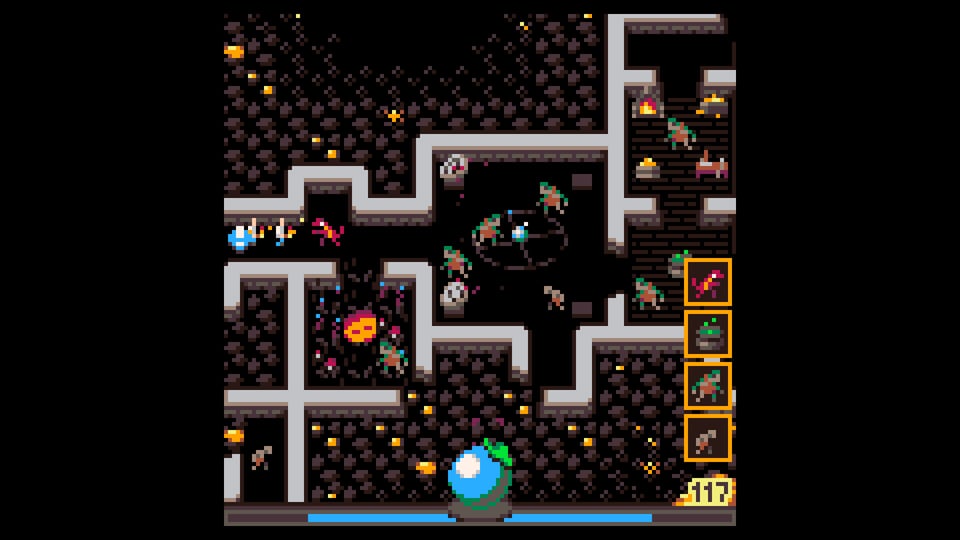
There have been many takes on Peter Molyneux’s wicked real-time management sim Dungeon Keeper (1997) over the years such as Evil Genius (2004) or War for the Overworld (2013). But they all have a much too high resolution and demand too many hours to beat!
After Cosmic Collapse (see issue #1), developer Johan Peitz’ released another high-quality PICO-8 game; the Keeper-like ►Orb of Aeternum, “[a] bite-sized dungeon manager” that evokes that good old Dungeon Keeper flair despite the limitations of the PICO-8 fantasy console. The game is still 10% off on Steam until Friday and at -20% on itch.io.
The Darkest Files
IN DEVELOPMENT • Darkest Crimes
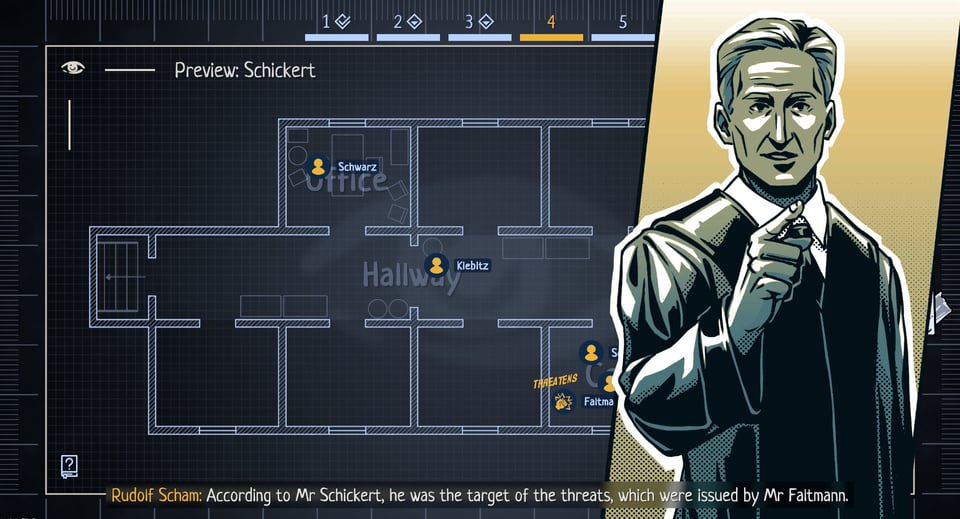
Paintbucket Games, the Berlin-based studio behind Through the Darkest of Times (2020), the game in which you lead a resistance group against Nazi Germany from within, secured the funding and support for their next game, ►The Darkest Files. This narrative-driven investigation game, “inspired by games like The Return of the Obra Dinn (2018) and Ace Attorney (2001)”, casts you in the role of a 1956-“prosecutor in West Germany, in charge of solving cases from the war” to close real historical post-WWII crimes and bring the victims justice.
In addition to its original premise, the game boasts a unique art style, a blend between Film Noir and graphic novels. From what I can tell from its Kickstarter page, it’s right up my alley: Cerebral investigative gameplay and foiling Nazis. There’s also a demo available.
Earthion
IN DEVELOPMENT • The Genesis Device

For 2024, I expected many things but a new release for the SEGA Genesis/Mega Drive was not among them. Japanese developer Ancient Corp currently develops ►Earthion, a brand-new shoot-em-up directed by chipmusic legend and FM-synthesis wizard Yuzo Koshiro, who scored The Revenge of Shinobi (1989), the Streets of Rage (1991) series, or Actraiser (1990), among others.
The latest trailer presents Earthion as the cream of the crop as it showcases mouth-watering visuals and fantastic FM-synth music by the maestro himself.
🔊 If you want to learn more about Yuzo Koshiro, please check out Episode 2 of my sporadic game music podcast, the ►Super Bleep Cast in which I talk at length about this great composer, starting at 11:09. You can also listen to it on Amazon Music.
The New York Times Simulator
RELEASED • Free Press

Game designer Paolo Pedercini, better known as Molleindustria Games, has been making poignant, relevant, political, and outright clever games for over 20 years now. Molleindustria is activism through games, “theory and practice of soft conflict — sneaky, viral, guerrillero, subliminal conflict — through and within videogames.” (Molleindustria Manifesto, 2003)
Now Paolo did it again with the ►The New York Times Simulator, a free and fast-paced browser game as a “test to assess your aptitude [as editor-in-chief]: select the news, edit the headlines, gain the approval of powerful friends, and add new subscribers”. The job, of course, makes it necessary to “tweak” some headlines or let a negative article jeopardizing your standing with a powerful friend drop below the fold.
The game itself is inspired by Lucas Pope’s The Republia Times (2012), itself a “warmup for Ludum Dare” before he got famous with Papers, Please (2013).
M.U.L.E. Online
RELEASED • Return of an Atari Classic
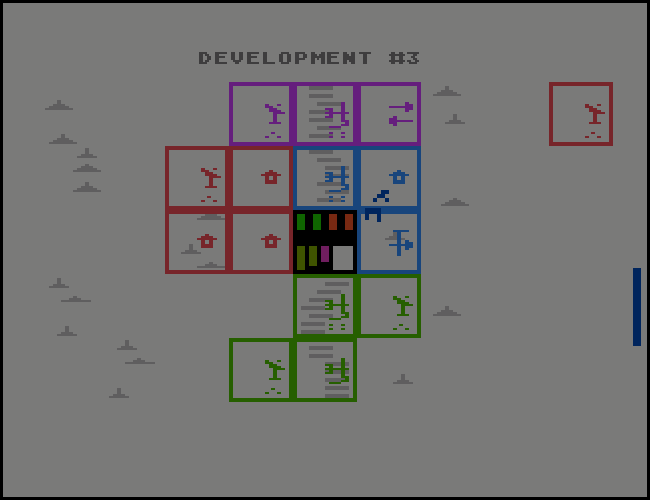
Ah, who can forget the engrossing sessions of Danielle Bunten’s timeless Atari 8-bit game, M.U.L.E. (1983)? Granted, that game is roughly as old as the person typing these lines so many of you might have never played this local multiplayer game. In M.U.L.E up to four players compete against and cooperate with each other on colonizing the planet Irata. Harvest resources, trade, and bid over for claims and playfully learn about economics.
Back in the day, reviewers called the game “a tour de force in programming and design, good family entertainment, educational and exciting”—as long as you had humans to play against.
Why am I telling you all this? Because last year developer Andrew Dieffenbach (puzzud) released ►M.U.L.E. Online, the officially licensed multiplayer version that runs natively on modern machines (Windows, Linux, and Mac) and allows for, you guessed it, both local and online multiplayer. Apart from additional support for gamepad inputs, the game has been gently modernized but looks and feels like the Atari 8-bit original which, personally, I very much approve of.
Quick Update
In the previous issue I showcased the low-poly helicopter simulation Thunder Helix. RMC has interviewd developer David Walters and ►previews that game at length.
Programming & Game Dev
Tools, resources, wisdom, humor.
WINDOWS • It looks like you’re trying to decrapify — I am about to install Windows 11 these days but have been putting it off as I dread the expected default shitload that Microsoft shovels onto their users. In my taskbar the last things I need are the weather forecast for my IP location, app suggestions, nor tabloid headlines; and I don’t want Cortana, OneDrive, or send telemetry, etc.
So far I always did this by going through the system registry with lots of time and a fine comb but thanks to Mastodon user //mellow, I’ve learned of the ►Windows 10/11 Decrapifier; “[a] cleanup script for Windows […] aiming to get a decluttered default experience on regular Pro or Enterprise installs. Also sets most privacy settings to ‘opt-in’ by default.” There’s an illustrated guide even! Thanks, //mellow!
NERD-SNIPED! • Looking for entries — CS/art/game nerd blinry ►asked on Mastodon for “self-contained, single-page artifacts that can nerd-snipe you; that you could hand out at an event, and it’d keep people interested/busy for a while, or teach them something”. For example the hexagonal RegEx puzzle, or the The Dutil-Dumas Message.
Beware: You’re almost guaranteed to be sniped by something in the replies that’ll steal an hour or more from you; like it happened to yours truly who made a mini-book out of a sheet of paper, courtesy of @rrmutt.

AI ASSET CREATION • Mech-AI-nical Turk — Senior Character Artist at Respawn Entertainment, Liz Edwards ►eviscerates (on Twitter) Kaedim’s claims of “creating state-of-the-art AI solutions to streamline the process of 3D asset creation”. In her thread, she demonstrates how the 3D models are clearly made by exhausted, overworked, and likely exploited humans.
GODOT • UI Components — Full-time indie developer Victor Meunier (MrEliptik) shared a ►multitude of different UI components for Godot 4, such as toggle switches, level-up animations, animated button fills, and more.
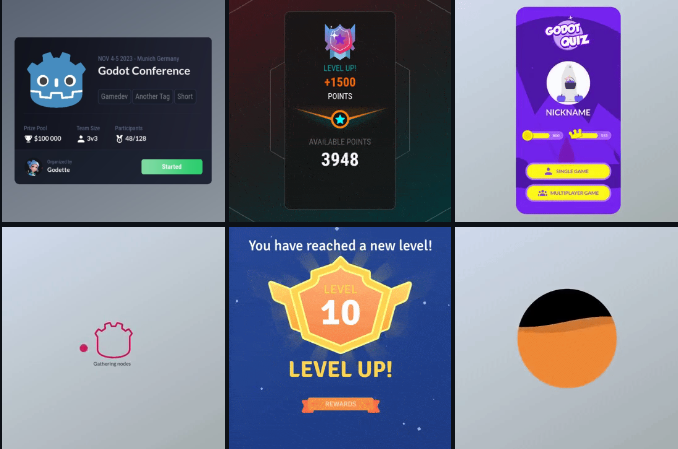
PHP/PROGRAMMING • You Got the Power — Sustainability advocate Dániel Szőgyényi shared on Mastodon “that using count($myArr) in your [PHP] for-loops’ check uses almost twice as much energy than saving this value to a variable”.
Dániel also made a tool, ►Joulenne on GitHub, “a simple turbostat-based energy consumption measurement tool” for PHP.
It’s not much power, but depending on how many requests your service has (or how many frames per second your game loop burns through) things like this can add up quickly, so mindful optimization goes a long way.
RETRO TECH TOOL • Format Disk — If you are serious about retro computing, you probably also share the headaches when trying to reliably read (and write) diskettes to be read by old machines as the Apple ][, Atari ST, or many others.
Fret no more: Jean-Michel Durand shared on Mastodon his latest release of ►Disk Jockey, “a simple-to-use disk image creator and analyzer for your retro computers (or emulators!)” for both Mac and Windows.
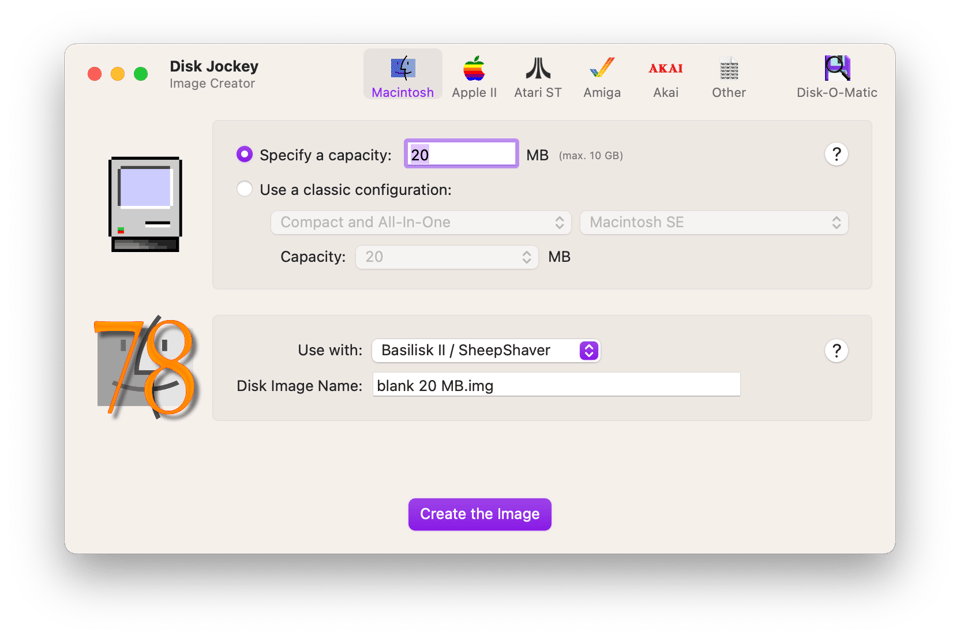
HOMEGROWN SERVICES • Indie all the way! — The Mastodon account Grow Your Own Services and its ►website encourages “people and organizations to declare independence from Facebook, Google, Microsoft, etc. by creating their own websites, social networks, personal clouds, messaging services, and other online stuff.” For example by buying a domain name and using it with an independent email provider. Good stuff!
HARD DRIVES • Reliability Report — When was the last time you backed up all your data? Let this be your reminder to do it sooner rather than later; and keep multiple copies! Redundancy is key as drives are bound to fail at some point.
My guide for HDD reliability is the annual ►Drive Stats report by the cloud provider Backblaze. You’ll get detailed breakdowns per manufacturer, drive model, powered-on-hours (POH), etc. In the end, however, it’s binary: Either your drive fails—or it won’t. Backup your data, friends!
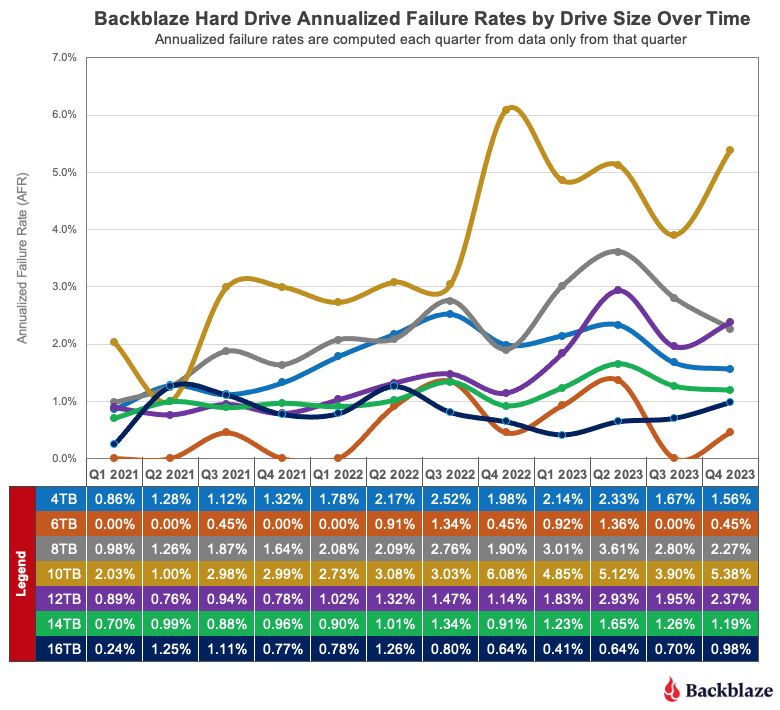
NETHACK • Source Code Diving — You know you’re a serious nerd when your leisure reading includes source code of classic games. Alfred Baudisch is one such nerd (one of us!) and shared amusing findings in the classic Roguelike NetHack (1987). Even without a degree in computer science C code is surprisingly readable. Alfred sums it up as such:
After 1h exploring the code, I can say that NetHack’s codebase is “the joys of programming”. Exploring the code felt as fun (or even more fun) as playing the game itself! And the codebase albeit 30yrs old is clear and easy to understand (yay procedural C code and LOTs of comments).
Bonus: There is an entertaining YouTube ►video titled A Guided Tour of the NetHack Codebase. Source code commentary, I’d binge that!
JAPANESE INDIES • Big in Japan — Japanese indie developer Nice Gear Games has a mission (apart from making games): They want to highlight and celebrate Japanese indie developers and their games who might not see any coverage in “Western” outlets. For this, they run Indie Tsushin (“Indie-News”) on BlueSky and Mastodon to get the word out about these games. It’s where I learned about Minami Lane, for example.
Also, on ►indietsushin.net you can find their zine, subscribe to a monthly digest, and much more!

ZINE • Unwind with Uncrank’d — I harbor much love for that yellow square with the crank from Panic Inc., the hipster handheld that is the play.date. It’s evident that I am not the only fan as the well-produced fan zine ►Uncrank’d Magazine sprung up in Montréal, Canada. It covers “music, dev interviews, Pulp, [and] It’s Pizza Time!” but also “accessory reviews, game overviews, tips, upcoming game teasers, art and so much more”.
Both physical and digital versions of each issue are available in Xania Lasagna’s store). Every week there’s also a short round-up on YouTube as well. From my cursory browsing, it seems to be on the same high quality-level as the Dank Zine (see issue 11). There are never enough zines!
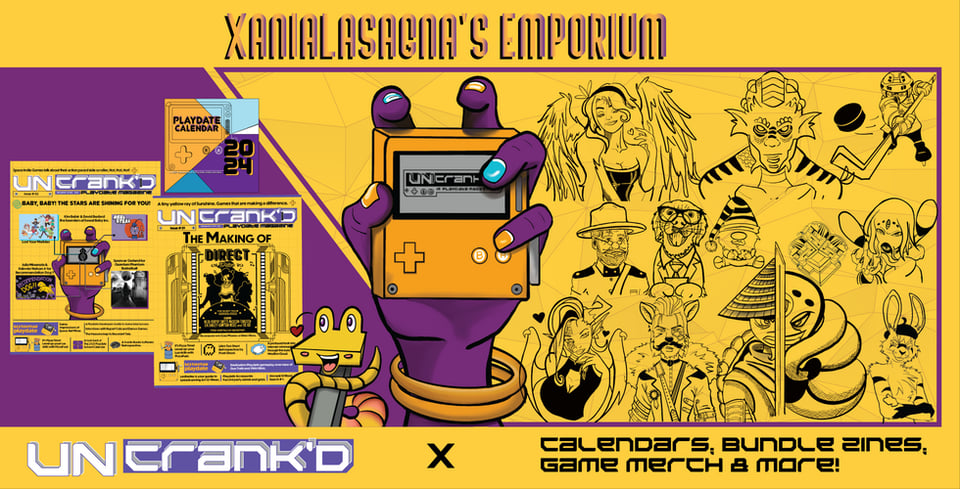
GRAPHICS PROGRAMMING • For Game Maker — I’ve already mentioned radiance cascades in issue 3, this new approach to calculating global illumination. It only took some tinkering until Alexander Griffis was able to release a 2D implementation for good old GameMaker Studio. If you’re into that sort of shader magic, find it ►on GitHub.
F2P ECONOMIES • Explained! — I’ve been praising and enjoying Aftermath’s journalism and reporting for a while now, so don’t expect me to stop. In their ongoing series “What I Do”, Luke Plunkett ►talked with a games economy designer about what their job entails and how they do it.
CREATIVITY • The Joy of Digital Painting — I can’t tell you how many afternoons I spent in MS Paint when I was a kid, diligently drawing lines with the mouse, imagining how my creations would look in color as the only computer we had in ’93 was an IBM PS/2 Note laptop with its horribly streaky monochrome LCD. Kids with access to a Macintosh had it a little better with Craig Hickman’s Kid Pix (1991) which was more welcoming than Microsoft’s competitor to MacPaint (1984). Now you can relieve this past effortlessly with ►Kid Pix 1.1 on Archive.org right in your browser.
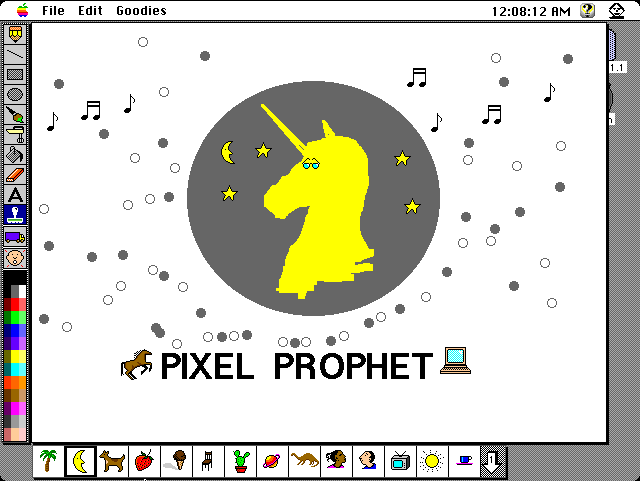
NEWSLETTER • When Life Gives You Lemons… — Ed Zitron, previous games journalist and current CEO of the media relations company EZPR, is online known for his insightful articles on gaming, tech, and society. You cand find his weekly (!) newsletter at ►wheresyoured.at.
Art & Inspiration
Art, science, and other inspirations that left an impression on me
Artworks by Japanese graphic designer Hiroshi Nagai (b. 1947) whose style seems to have returned with vapor-wave music.



(more here)
Pixel’s Mixed Bag
What I’ve been up to ◾ Backup week, which meant my ears are still ringing from my LTO tape drive I kept busy writing the ~6 TB of my 2023 data onto tapes. With that out of the way, I am finally free to start building that new PC.
}
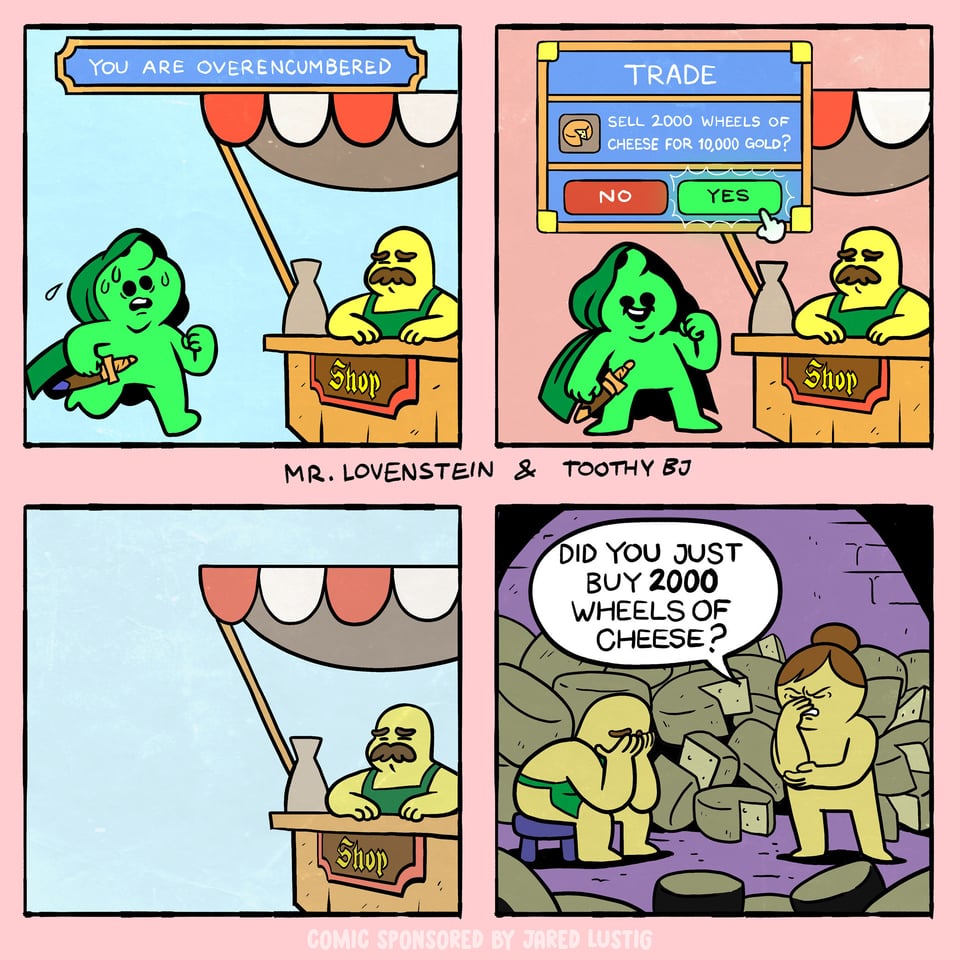
by J. L. Westover (more ►here) You can also show your support on Patreon.
You can support the Pixel Prophet at ko-fi, or donate via PayPal to ensure its sustainability. It also helps to tell others about the Prophet who share your great taste in newsletters.
Add a comment: